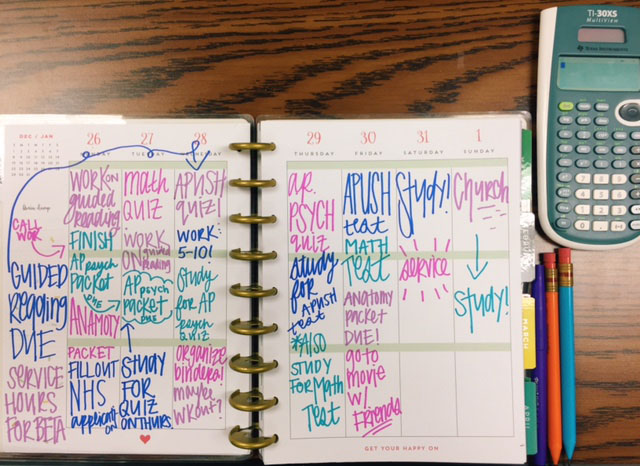Part 8: The School
May 22, 2017
Call it pressure. Call it stress. Call it anxiety.
Call it what you want, but the dark circles under your eyes and the headache pushing against the back of your skull are commonplace in schools across the country, where kids feel pressure to excel academically.
But where does this pressure originate inside Cambridge?
Counselor Jennifer Sidelinger said she believes students deal with a great amount of pressure that is, in actuality, mostly coming from themselves and their peers. She said that, rather than enjoy their teenage years, most students spend their entire high school career focusing on one thing: college.
Sidelinger said that while she does not believe parents force their kids to do things they wouldn’t want to do, she thinks parents do rightfully have a role in their children’s academic lives and should be pushing their kids, to an extent, to succeed academically.
There are high expectations, she said, and students want to live up to those expectations, promoting stress and anxiety.
For this article, The Bear Witness spoke to 26 random students in the school cafeteria about their levels of academic anxiety. Students were asked to rate their anxiety on a scale of one to 10 and to explain which factors contributed to their stress. Every one of the students interviewed said his or her stress level has been at a five or higher at some point in the year.
During these interviews, most students complained that teachers seemed not to consider other classes or extracurricular commitments, such as sports or jobs.
Freshman Abi Beirne, one of the 26 students, said teachers “absolutely do not” take into account anything outside of their own classrooms.
“It prevents me from enjoying things,” said Beirne.
Junior Marryam Khan, who takes four AP courses, in addition to other honors-level courses, agreed with Beirne. Exhaustion, lack of concentration and an unhealthy diet are just some of the symptoms of school stress and anxiety, she said.
Humanities Director Sara Faircloth said that working around other classes is difficult, adding that she tries to keep her students’ best interests in mind.
“It’s difficult to plan around other classes since my students have such varied schedules and teachers, but I try to provide as much flexibility as possible with deadlines,” said Faircloth.
James Campbell, who teaches AP US Government and AP Comparative Government and Civics echoed Faircloth’s views.
“If a majority of students already have two tests or major assessments on some day, I will make sure I put my quiz or test on another day. If only one student is in that situation, I am usually willing to accommodate that student by allowing him or her to take my assessment early or late,” said Campbell.
AP Calculus teacher David Pomerance has a different view on the matter. He said the schedules teachers make for their courses are often too complex to work around other classes, without sacrificing their own curriculum.
“Instead, I am mindful to assign work in a time frame that makes it possible for students to pace themselves. If they have to spend more than 30 minutes per day on my class to be successful, then there is an issue to investigate,” said Pomerance.
Junior Ava Stone said her stress comes from applying for colleges and rigorous AP and honors courses. With three AP courses, Stone is stressed enough as it is, she said. However, she juggles a job on top of her school work, resulting in a lack of sleep, which sometimes affects her academic performance.
Sidelinger urges students not to “beat themselves up so much” and remember things like failing a test or having a B in a class, instead of an A, is not the end of the world. Acknowledging that school workload and pressures from teachers, parents and fellow classmates can be overcome is the first step to maintaining a healthy, happy life, she said.
“That is what I want students to know. That, you know, you hit a bump in the road, or you’re not the salutatorian, or whatever, it’s okay. You can still get where you want to go,” said Sidelinger.
